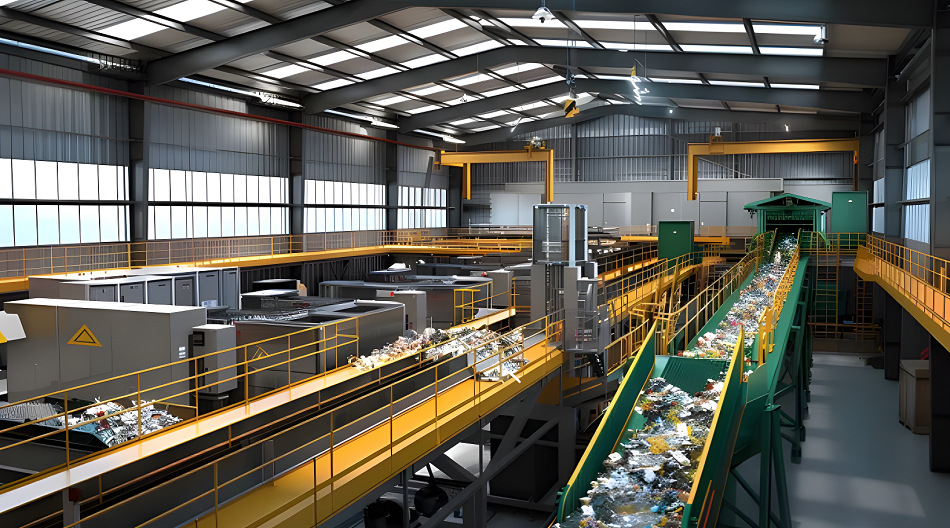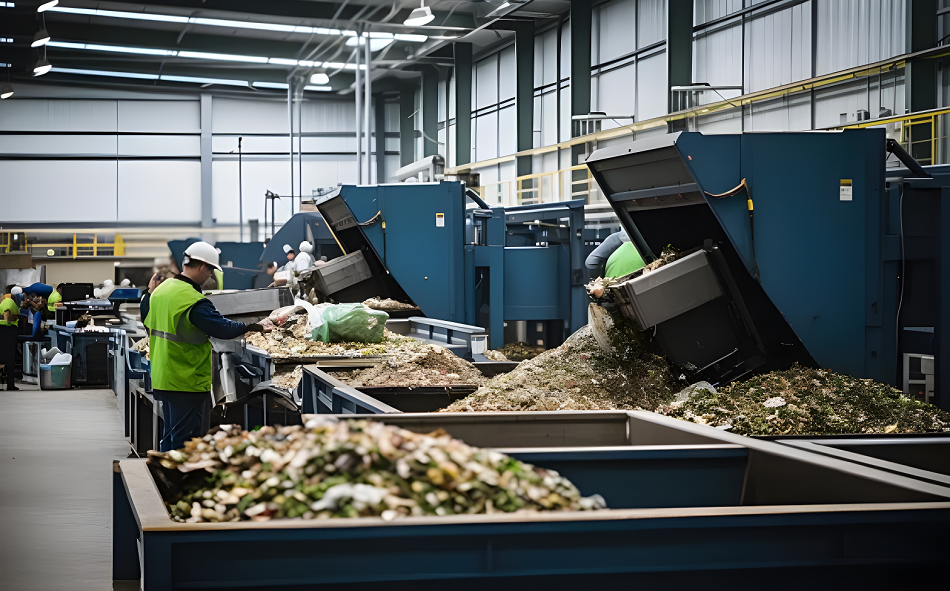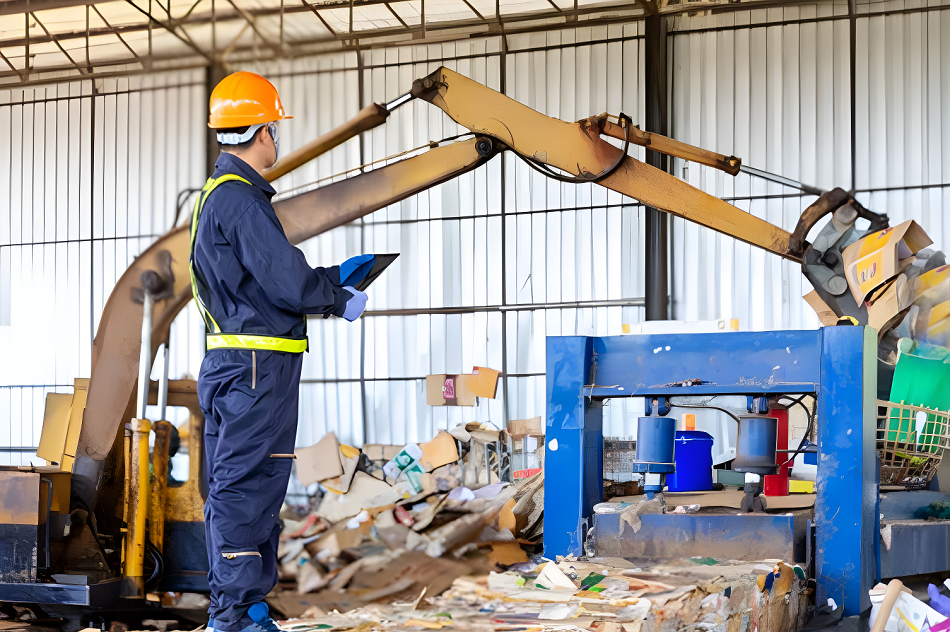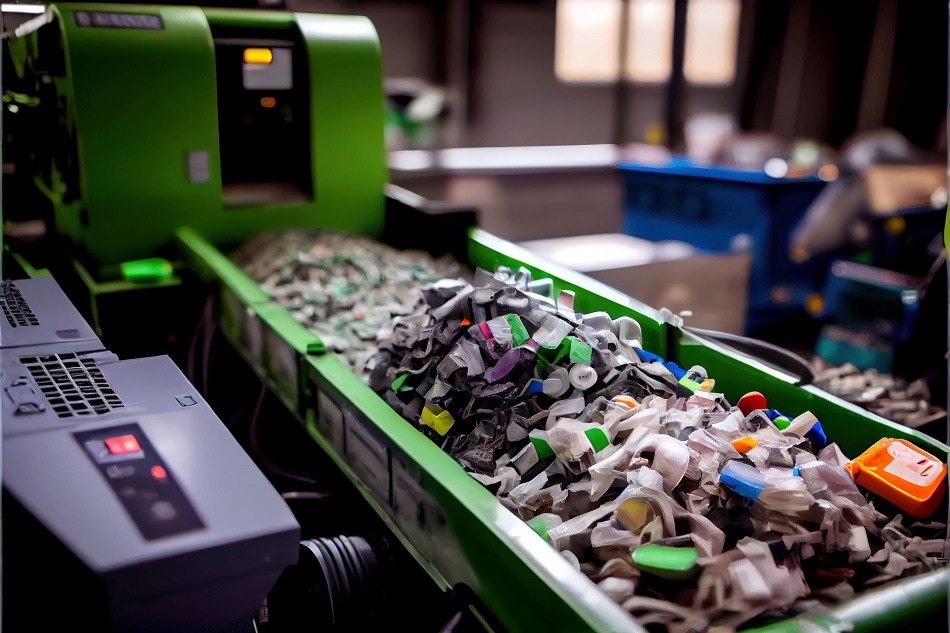
Recycling machines are tools or systems used for sorting, processing, and disposing of waste. These machines typically operate in various stages, including separation, shredding, and processing of waste, to prepare it for reuse or optimal disposal.
Recycling machinery is used in various industries such as waste treatment plants, resource recycling, manufacturing, and agriculture. These machines can be utilized for recycling paper, plastic, metal, glass, and organic waste such as garden waste and food scraps.
The Importance of Recycling Machines in Today’s World
In the modern world, where waste production has significantly increased, the role of recycling machines in environmental preservation and pollution reduction is undeniable. These machines not only prevent the accumulation of waste but also facilitate the creation of new materials from waste and the reuse of resources.
Types of Recycling Machines and Their Functions

Recycling machines vary in design based on the type of waste and materials they process. Below are some of the main types:
1. Paper and Cardboard Recycling Machines
These machines separate paper and cardboard from other materials. Then, they shred them and, using pressure and heat, transform them into new paper, cardboard, or cartons.
2. Plastic Recycling Machines
Plastic recycling machines categorize and shred plastic waste based on its type. These shredded pieces are then used to create new plastic products.
3. Metal Recycling Machines
These machines use magnetic separators to separate ferrous and non-ferrous metals. The shredded metals are then used in various industries to create new products.
4. Biomass Recycling Machines
Biomass machines are designed to process organic waste. These devices shred garden waste and food materials, then ferment them. The output of this process is typically biogas, which is used as an energy source.
5. Glass Recycling Machines
These machines sort and crush discarded glass, transforming it into new glass products.
Electronic Waste Recycling Machines
These machines are developed for processing electronic waste. They separate various components such as metals, plastics, and electronic parts, preparing them for recycling.
Auxiliary Equipment in the Recycling Process

In addition to the main machines, auxiliary equipment also plays an important role in the recycling process:
Collection Equipment
- Garbage Collection Vehicles with GPS: These vehicles optimize waste collection routes.
- Smart Recycling Bins: These bins encourage people to recycle by sorting waste.
Sorting Machines
- Belt Conveyor Equipment: They quickly direct materials to the next stages.
- Optical Sorting Machines: These machines identify and separate materials such as plastic and glass.
- Magnetic Separators: Used for separating ferrous and non-ferrous metals.
Processing Machines
- Hydraulic Presses: Used for compressing recyclable materials such as paper and plastic.
- Industrial Shredders: Used for reducing the size of materials and preparing them for the next stages.
- Recycling Furnaces: Used for recycling materials that require heat and high temperatures.
Testing and Quality Control Equipment
- Quality Control Laboratories: Used to ensure the quality of recycled materials.
- Online Sensors: Used for monitoring processes and identifying issues in real-time.
Advanced Technologies in Recycling Machines

In recent years, new technologies have been implemented in recycling machines, enhancing the efficiency and accuracy of processes:
- Automation and Robots
Advanced robots are designed for automatic material separation, reducing human errors. - Software Platforms for Data Management
These platforms monitor machine performance and optimize recycling data. - Advanced Sensing Technology
Modern sensors accurately identify and separate recyclable materials.
Benefits of Using Recycling Machines

- Reduction of Environmental Pollution
- Optimal Use of Natural Resources
- Reduction of Waste Disposal Costs
- Creation of Job Opportunities in the Recycling Industry
Conculsion
Recycling machines play a crucial role in solving environmental problems. With their advanced technologies, these machines transform waste into new resources and prevent environmental damage. Investing in this industry not only helps the environment but can also lead to economic growth and sustainable development.
